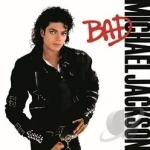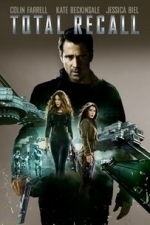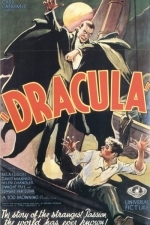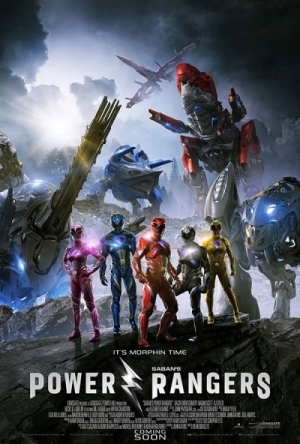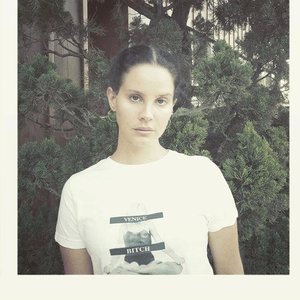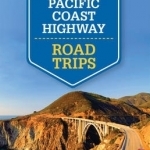
Lonely Planet Pacific Coast Highways Road Trips
Lonely Planet, Sara Benson, Andrew Bender and Alison Bing
Book
Lonely Planet: The world's leading travel guide publisher Whether exploring your own backyard or...
Natasha Khan recommended Bad by Michael Jackson in Music (curated)

LeKiosk - le réflexe presse
News and Entertainment
App
Discover the best App for instant access to your favourite magazines, whenever and wherever you...
Gareth von Kallenbach (980 KP) rated Total Recall (2012) in Movies
Aug 7, 2019
The premise follows the original in only a rough sense. Sometime in the future, the world has been left mostly uninhabitable due to a deadly chemical war across the globe. Humanity has been left to residing in the only remaining habitable landmasses – Western Europe and “The Colony”, the latter being modern-day Australia. Because air travel is now impossible, the only travel between the landmasses is through a massive elevator called “The Fall” that cuts through the center of the Earth. Douglas Quaid (Colin Farrell) is a factory worker who works in Europe but lives in “The Colony” with his wife, Lori (Kate Beckinstale). His chronic nightmares lead him to become interested in the “Rekall” service – a machine that can implant memories into customers. His interest will lead him on a wild journey with Melina (Jessica Biel) to learn about his true self as well as secrets of Cohaagen’s (Bryan Cranston) tyrannical administration.
The problems of the film really start with the premise. While I enjoy the creativity of something like “The Fall”, it is simply too ridiculous to take seriously. They deserve credit for coming up with a relatively unknown science fiction concept, but an elevator that travels through the center of the Earth? Peoples’ suspension of disbelief can only be pushed so far. It serves a practical purpose in the plot – to create the conflict between “The Colony” and the mainland and between the government and the Resistance. Yet, too much time is spent trying to introduce this concept and make it seem plausible than the film should. It honestly seems easier to just use the original film’s conflict between settings – Mars and Earth. I have to ask, what makes an elevator between two lands more contemporary of an idea than a conflict between colonial Mars and Earth. This is especially true considering recent news that a Mars colony might be seen in our lifetimes.
The other problems are more literary. Colin Farrell’s Douglas Quaid is portrayed very well throughout the film, and he manages to make the character satisfactory in the emotional portrayal of a man with a confused past and an insane situation. But even then, I have to say Arnold’s original portrayal seemed overall more human. The problem with Colin Farrell’s character is a mixture of performance and writing in his introduction. It is hard to believe him as someone so distraught over his nightmares that he absolutely feels compelled to go to Rekall. If they spent more time exploring his inner demons and how they are bringing his life down, then he would have been a much more compelling character. As it stands, he just goes through the motions of a protagonist. All of the other characters are the same way. Kate Beckinstale’s villainous Lori and Jessica Biel’s Melina are fairly shallow characters. They are not bad at their roles but that is all they, unfortunately, are: roles. Like Quaid, they just go through the motions, playing their part as clichéd character archetypes. Bryan Cranston is always awesome in any role, but in this he is not given much to work with. All he ends up being is just an evil tyrant with a megalomaniacal plot – with very little reason or background.
Those issues said, there are many things that do work. The pacing is good throughout, with no moments feeling awkward. The art design is exceptional, and there are no moments in the film that are boring to look at. To its credit, almost every scene is full of beautiful science-fiction design. The only complaint in this area is that some of the action scenes feel very cluttered due to the overall noise of The Colony’s design. The plot moves forward steadily, and it is overall simple to understand. That said, it is not without its own faults. The plot starts out great but becomes full of usual secret agent thriller clichés. Also, the plot becomes very campy, not to mention unbelievable, in its third act. The third act is also where there are the most plot holes – notable plot holes at that.
If you can shut your brain off for a couple hours, you can enjoy “Total Recall”. The film is pretty to look at and is absolutely packed with action sequences. All of the action sequences are well shot, well paced, and entertaining. The actors all do great with what they are given; but the problem is that they are not given much. They are all fairly flat characters, but are all satisfactory for the service of the plot – a plot that is well paced and understandable, but one that becomes campy, ridiculous, and peppered with notable plot holes. It is not as tightly written and directed to be a great secret agent thriller, and not as inspired to be a great science fiction story. The original was exceptional in its setting construction – pulling the audience into the amazingly designed Paul Verhoeven world. It was full of comedy and thrills, thought and design. As it stands, the moments that could really go far in establishing a passionate soul-filled, inspired world are instead spent on making quick references to those vary moments from the original. It could have established its own voice, its own heart and soul, but it just settles on being your clichéd average science fiction blockbuster.
RəX Regent (349 KP) rated Dracula (English) (1931) in Movies
Mar 7, 2019
Tod Browning was a man who would unfortunately find little success in the sound era, but not necessarily because he couldn't move with the times, but because his career was derailed a couple of years later by his disturbing horror pic, Freaks.
Dracula was shot THREE times. One, this one, was the conventional sound version that we all know. An other was shot at night and in Spanish for the benefit of that audience, which the studio supposedly preferred. This was quite common at this time, but little known nowadays. And the third was a straight forward silent version for the many theatres still un-equipped to handle sound.
But the styles of the silent era are all over this film. From the long silent reactions shots and the over acting, especially by Bela Lagosi in the titular role. This was also the adaptation of the stage adaptation of Bram Stoker's chiller, and was faithfully adapted from that source, hence the lack of more complex special effects, with bats on strings and fog machines, over more cinematic effects.
The transformation scenes for example, where the Count morphs from a bat to the undead human occur off-screen, rather than some form of cross fade etc. Is this a choice driven by lack of money? Lack of cinematic ambition of a choice to stick to the stage material? To be honest, I have too little knowledge or experience of Tod Browning's work to suggest a reason, but when all's said and done, it did work.
Let's be honest, this is 80 years old and is not the least bit scary and it is hard not to laugh, but in context, I'm sure it worked well at the time and the story is well conveyed. Lagosi's undead performance is hammy by today's standards but he was somewhat likable. He was very deliberate, slow and the silent era has certainly left its scars, as the subtly of sound performing was yet to take hold.
But this is the sort of film were silent melodramatic acting still worked. This is of course a piece Gothic Horror, the home of melodrama if ever there was one. This is surly a product of its time, both as the industry went through one of it's most dramatic changes, which ended so many careers as well a created so many new ones, but it's also, let's not forget, the first direct adaptation of Bram Stoker's book, besides the 1922 German version, Nosferatu, which changes a fair few details to try to get around the copyright, failing to do so mind, resulting in failed bid to have every copy of the film destroyed.
This is the film that ingrained the image of the Dracula that we know today into popular culture. This was were the Universal horror franchise began. For whatever faults it has by today's standards, it did something right.
Movie Metropolis (309 KP) rated Power Rangers (2017) in Movies
Jun 10, 2019
Nevertheless, production company Lionsgate has taken the chance and given the plucky superheroes their first film in 20 years. But does this classic brand have what it takes to excite 21st Century audiences?
Five ordinary teenagers must band together to become something extraordinary when they learn that their small town of Angel Grove – and the world – is on the verge of being obliterated by the villainous Rita Repulsa (Elizabeth Banks). Chosen by destiny, the new heroes quickly discover they are the only ones who can save the planet. But to do so, they will have to overcome the issues blighting their real lives and before it’s too late, band together as the Power Rangers.
Director Dean Israelite in his second feature film crafts a gritty, modern-day reimagining of the series that manages to lose nearly all the campy fun in the process. It’s such a shame that a film as progressive as Power Rangers gets bogged down in poor pacing, expositional dialogue, messy action sequences and hilariously obvious product placement for Krispy Kreme doughnuts.
“How is it progressive” I hear you say. Well, this is the first film to feature an autistic superhero and a female protagonist who appears to be questioning her sexuality and for that Power Rangers should be given huge applause.
There is also an impressive cast. Bryan Cranston playing wise former Ranger Zordon is one of the most bizarre casting choices in recent memory. He’s certainly very good, though why he would choose a project of this nature is beyond me. The new Rangers are all fine with RJ Cyler probably coming across best as the autistic Billy Cranston.
Unfortunately, Elizabeth Banks is the only person who seems to grasp the camp, cheesy nature of the original television series. Her completely over-the-top performance is one of the best parts of the film, but it feels at odds with the darker tone that’s been set.
Pacing is also not a strong point. At 124 minutes, you’d be forgiven for thinking there’s time to pop in an origins story, a nice training montage and a climactic battle. It’s there in some form, but our heroes don’t “suit up” until the final 20 minutes which then becomes a mess of brash CGI as the film-makers try to tie up all the loose ends.
Overall, Power Rangers isn’t the royal mess it could have been. It’s stylish, progressive and well-acted with a decent storyline that desperately tries to bring this 90s pop-culture phenomena very much into the 21st Century.
Unfortunately, Lionsgate haven’t realised that retro is all the rage and in updating Power Rangers for a modern audience, they’ve lost what made the series and its films so endearing in the first place. It’s definitely better than 2015’s Fantastic Four, but Guardians of the Galaxy it isn’t.
Anyone fancy a doughnut?
https://moviemetropolis.net/2017/04/08/anyone-for-doughnuts-power-rangers-review/
Kirk Bage (1775 KP) rated Norman F**king Rockwell by Lana Del Rey in Music
Mar 3, 2020
I had all but given up hope of her becoming an artist of real worth by the end of the decade. It was a case of “remember when Lana Del Rey was the next big thing?” So, I was not expecting her sixth album to be not only very very good again, but potentially her best work to date, even surpassing Born To Die! You could hear it on the first listen – which for me took till December last year, despite its late August release. The reviews had been great, the award nominations rolled in and my attention was caught by this artist once again.
It took only a handful of listens before I had decided this was a great album! And now I am playing it a couple of times a week, continuing to get more out of the lyrics every time. It also plays really well as quiet background music, or loud, as a melancholy rock-out – a trick that isn’t easy to achieve. Her knowing nod to pop culture references, and the divine mixture of 50s Americana, folk and blues, can be a wonderful thing when it works. With six singles already released, there is proof this album has a more solid backbone tune-wise than the previous four efforts.
The task now is making her brand popular again in the singles market, as not one of the six released made it into the top 40, either stateside or in UK. However, the album was #3 in America and #1 in the UK, which gives me more hope that what we are seeing is the maturing of a genuine music artist, and not just an act, existing for sales. There are many, especially solo female artists, that could follow that example; worry more about making good music and less about “the product” and great things can happen.
For me, I love tracks 1-5 played in that order: they are all great tunes, and Venice Bitch at a playing time of 9:38 is an epic pop opus that makes me want to stand up and applaud! The final track, Hope is a Dangerous Thing for a Woman Like Me to Have, But I Have It, is also highly praiseworthy, summing up the message of the whole work beautifully. And it is a fine, honest, feminist, strong yet always vulnerable message. California is a long way away from my world, but I feel I know what she is talking about, somehow.
Look out also for some mesmeric retro home-movie videos on YouTube that segue some of the songs into a dreamy montage. Big fan!

Yodha Love Astrology Horoscope Vs Daily Horoscopes
Lifestyle and Reference
App
Why settle for an ordinary horoscope when you can have access to authentic Vedic astrologers from...

REACTION.CAM: Vlog Video Maker
Photo & Video and Social Networking
App
• "I really love this app. It makes me feel like I'm a pro YouTuber." - sammymenz • "Amazing...
